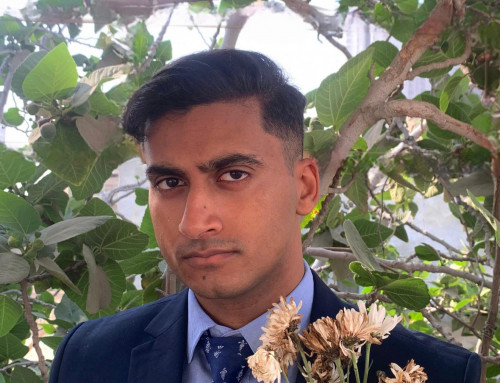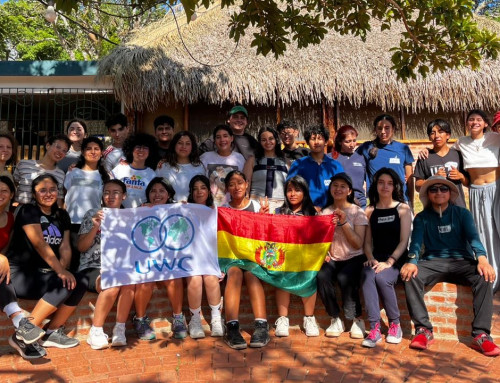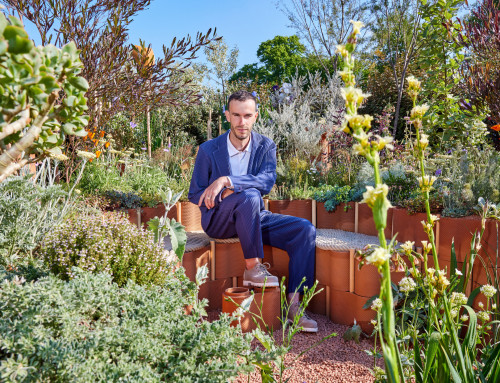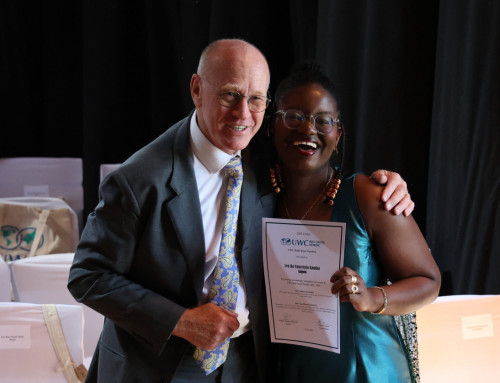Simon Ramsay, member of staff at UWC RCN since 2015, took up the opportunity to teach at Waterford Kamhlaba, United World College of Southern Africa, for the month of July. Here he reports back:
I feel that a major strength of the UWC movement is the individuality of the schools and colleges, the idea of culturally and socially distinct institutions working under wider UWC values and implementing them in ways which further enrich the individuality of the schools and colleges. Therefore, when I was asked if I would like to work alongside colleagues in Waterford Kamhlaba for a month during the summer break, of course I was thrilled!
As our term finished and we said goodbye to our second years, and the first years prepared to head home on their summer break, I prepared to head to Swaziland and see what happens in a sister school and to try and learn more about our own college by comparison.
It must first be said that Swaziland is a gorgeous country with so much to offer and I encountered so much kindness and generosity during my stay. Resting outside of the capital, Mbabane, the school sits on a hill which gives it a remarkable view over the hills and valleys which make up the most populous area of Swaziland. The school runs 5 lower year groups before the IB Diploma Programme and offers scholarships from across Africa as well as from National Committees across the world. Around 70% of the students are from Africa and this understandably lends a distinct flavour to the college. It also reinforces the point that Africa isn’t a homogenous region and the ‘African’ nature of the school retains a remarkable level of diversity.
When I arrived I was given a tour of the campus from the Headmaster Stephen Lowry. The first thing that you notice is the huge range of sporting facilities. There are several full-size pitches, as well as basketball, volleyball and tennis courts. It was great to see these being used almost constantly, even if the students were lamenting that it was ‘winter’. On that note, when I told students how cold it could be during an RCN winter morning walk to class there was genuine horror on their faces and it reinforced to me our own students’ abilities to pull together in Flekke and support each other in that first winter, especially helping those who come from warmer regions!
As the tour continues we visit classrooms and see the refurbishments that have been taking place. The school is undergoing a period of rejuvenation, the opening of spaces and taking down of walls, as well as landscaping – and this lends to a feel of real collegiate interaction. It is becoming a wonderfully light and open campus and I would love to have seen it in the summer sun when it must be buzzing with students. As we finish the tour there were a few notes to be made. Firstly, the internet is terrible. Never again will I go to Sven and Bill in our IT Department and complain of slow internet. I am sorry…truly. Secondly, there is no internet in the classrooms – everything runs off laptops and obviously there are no smart boards. To be fair, I knew this already but once I was there I started to think … how would some of our RCN students manage without their internet-connected laptops in class!? The answer, obviously, is that we all work with what we have and to the limits and limitations of our environments … I think that perhaps we do not dwell on this enough as a college and perhaps at times we can all take what we have for granted. Perhaps we should consider turning off wi-fi on campus from time to time just to let ourselves know that it isn’t the end of life as we know it.
The largest difference between Waterford and our college at an academic level is almost certainly the inclusion of years 1-5. The younger students on campus makes it feel like a normal high school rather than an IB diploma college, and gives lots of opportunity for inclusion. The students interact a great deal with the younger years through sports and through ComServe (Community Service). The ComServe program is extensive and an absolute credit to the school. It is carrying out fantastic work locally and I had the wonderful opportunity to visit the Mpaka refugee camp on a trip as part of a long running association between the two.
At the weekend it was possible to travel around the small country and to enjoy the animals, reserves and hospitality. It feels like wherever you go in Swaziland the reputation of Waterford precedes you.
I would encourage all of us to read more about the formation of Waterford and the work that has been going on for the duration of its existence – as well as for UWC teachers and students to reach out and connect with those in our sister schools and colleges. We talk so much about the diversity within our campuses. It strikes me that now is the time to look at the diversity across UWC – the people are there and are eager to collaborate and we should be looking at connecting with them.
From the staff to the students, the leadership to the maintenance staff, there is a wealth of experience to learn from and it was a pleasure to explore such a remarkable school in such a unique setting. I feel we would all gain a lot from understanding more about our sister schools and colleges, and that is most definitely true of Waterford!
For profiles and news of other students, alumni and staff, click here.






